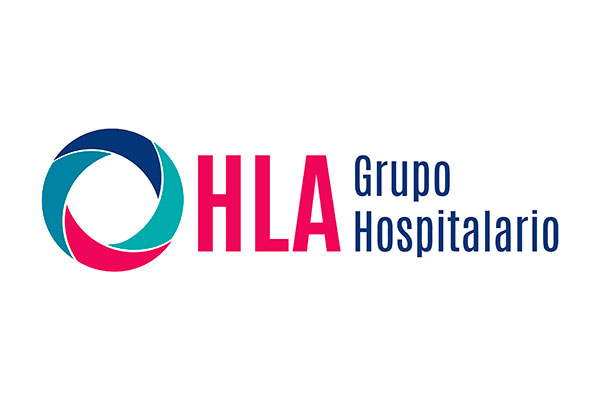Specialists at the Managua Reproduction Unit advise women who suffer from severe menstrual, pelvic or sexual pain to see their gynecologist for an early diagnosis of the disease and to prevent infertility.
 The first symptom of endometriosis is pelvic pain that may begin before menstruation and extend over several days of the period. You may also experience pain in your lower back and abdomen. Endometriosis is one of the most common gynecological diseases in women of reproductive age and is considered responsible for half of the unexplained cases of infertility. However, it turns out to be a fairly unknown pathology for a large part of society despite the fact that it exposes patients to ovarian cancer.
The first symptom of endometriosis is pelvic pain that may begin before menstruation and extend over several days of the period. You may also experience pain in your lower back and abdomen. Endometriosis is one of the most common gynecological diseases in women of reproductive age and is considered responsible for half of the unexplained cases of infertility. However, it turns out to be a fairly unknown pathology for a large part of society despite the fact that it exposes patients to ovarian cancer.
Any woman can suffer from the disease, although it has been proven to have a clear hereditary component, so a woman whose mother has suffered from this disease is more likely to suffer from it. Women who begin menstruation at an early age, and women who have frequent periods or periods that last 7 days or longer, are also more likely to suffer from this condition. Other symptoms include blood loss between menstrual cycles, fatigue, or exhaustion without apparent reason.
It is a chronic gynecological disease consisting of the onset and growth of the endometrium outside the uterus. Its cause is unknown despite numerous studies that exist focused on finding out why it happens. The endometrium is the innermost layer covering the uterus and when implanted in a disorderly manner in the ovaries, fallopian tubes, vagina, pouch of Douglas, ligaments supporting the uterus, even in the bladder, intestines, rectum or lining of the pelvic area, it usually forms blood cysts. Many people experience intense pain, especially during the menstrual period, and between 30 and 40% of women who suffer from it have difficulty getting pregnant.
The specialists of the Reproduction Unit Managua recommend that women who suffer from menstrual pains, which do not stop with regular treatment, pelvic pains or when having sexual relations, to visit their gynecologist for an early diagnosis of the disease that will improve their quality of life and prevent infertility. The diagnosis of endometriosis can only be certified by laparoscopy, a surgery with general anesthesia consisting of placing inside the abdomen a tube with light that allows the gynecologist to inspect the organs and visualize if they have been invaded by the endometrial tissue.
The gynecologists of the Reproduction Unit Managua highlight how important it is to have a complete diagnosis as soon as possible, since waiting lists for surgery can delay the intervention an average of three years. By then, they may have lost an amount of ovarian tissue that prevents them from gestation, which ends their chances of being a mother.
Being a mother who suffers from endometriosis
 One of the possible complications of spontaneous gestation is that the endometriosis tissue remains in the fallopian tubes, loosing their ability to transport the egg and connect with the sperm cell.
One of the possible complications of spontaneous gestation is that the endometriosis tissue remains in the fallopian tubes, loosing their ability to transport the egg and connect with the sperm cell.
This doesn’t mean you have to give up motherhood. Although it may be a little more difficult to get pregnant naturally, you will most likely achieve it with help. Assisted reproduction treatments are a possible solution and, depending on the extent of the pathology, the patient can choose one treatment or another. There are different methods that will allow you to conceive your baby and, therefore, accomplish your dream of becoming a mother.
In very specific cases in which the permeability of the tubes is checked and the patient is young, artificial insemination may be attempted, but the most commonly used technique is in vitro fertilization (IVF). In this treatment, the union of the sperm cells and the egg is performed in the laboratory to create embryos. Then, the embryo is transferred to the patient’s uterus where the pregnancy is implanted and develops.
Those women with more severe endometriosis, who suffer a deterioration in their ovarian reserve due to the disease, can use in vitro fertilization with donor eggs, a technique known as ovodonation.
In the Reproduction Unit Managua we foster life
 The specialists of the Reproduction Unit Managua will inform you and advise you on the most appropriate treatment for your situation. We offer personalized attention with maximum comfort, tranquility and confidence.
The specialists of the Reproduction Unit Managua will inform you and advise you on the most appropriate treatment for your situation. We offer personalized attention with maximum comfort, tranquility and confidence.
You can contact us by phone +505 8465 7955 or by filling in the contact form on our website.
Visit our website and follow us on Facebook: Unidad de Reproducción Managua @URNicaragua




